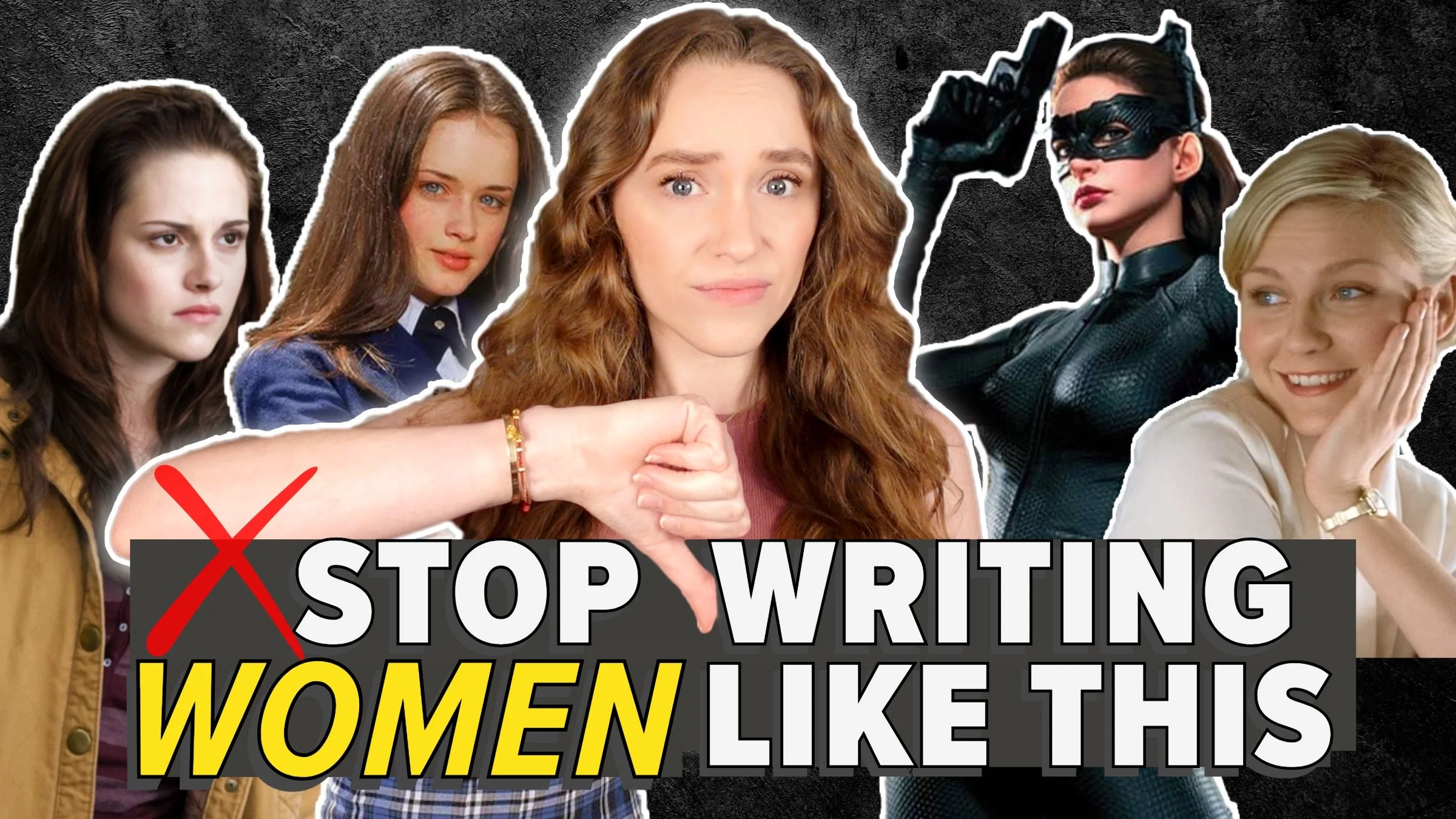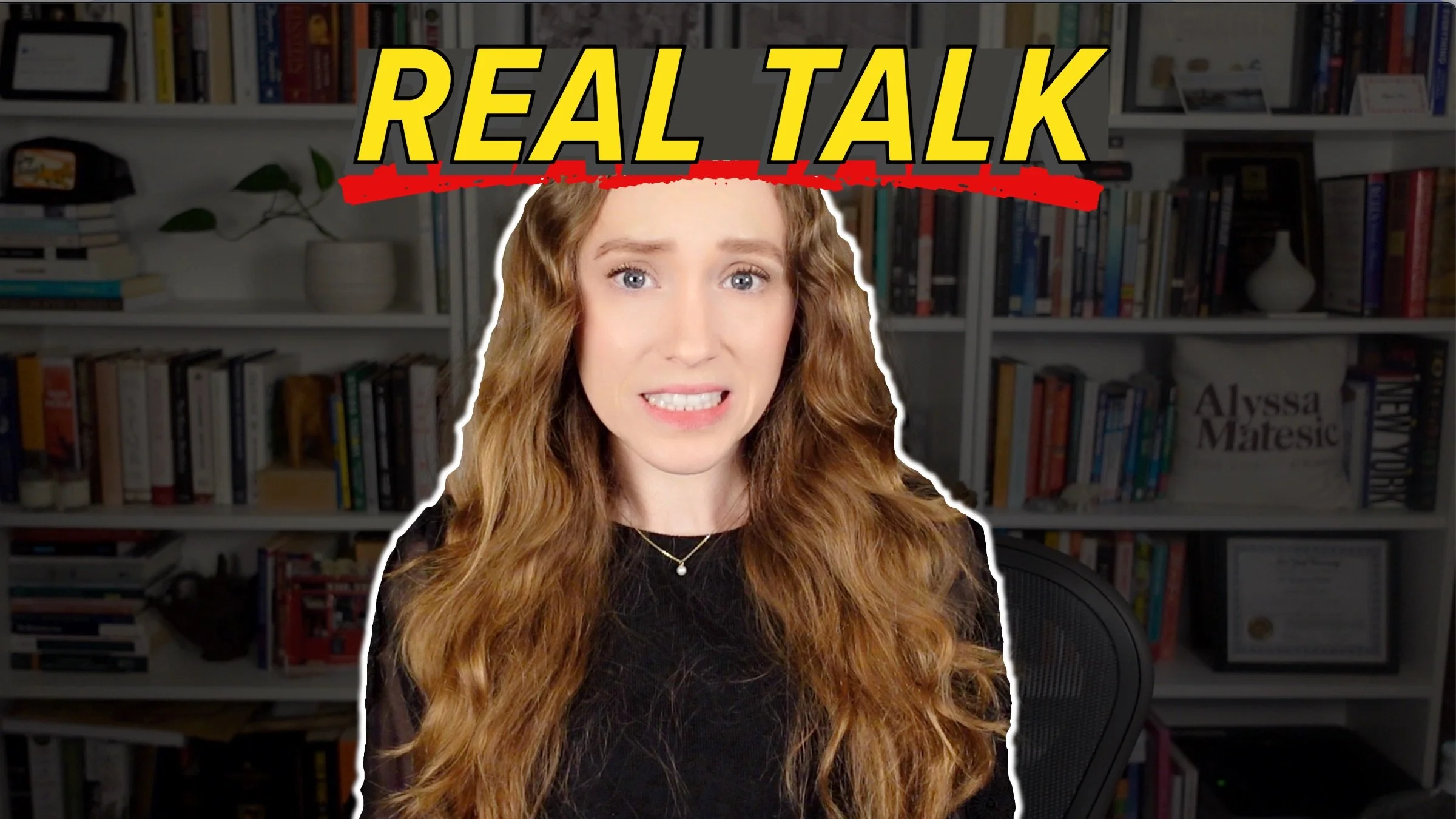What Do Publishers Look For in a Book?
HIT PLAY OR READ THE POST BELOW:
If you’re an aspiring author hoping to eventually get your book published one day, you’ve likely wondered: What do publishers look for in a book? The business of buying and publishing a book is quite subjective and nuanced, but there are certain things that publishers are looking for and certain steps that a book must go through in order to get a book deal.
So, today I want to offer my insight on what publishers are looking for based on my experience being on the acquisitions editorial team at Random House.
What Do Publishers Look For in a Book?
There is not a specific set of checkboxes or criteria that a book has to meet to be published, but there are frameworks that publishers use to evaluate whether they want to offer money for the rights to a book.
When it comes to what publishers are looking for in a novel, there are four major factors they will consider first.
1. The Editor Loves it
The first thing that a publisher needs in order for a book deal to happen is for an editor on the team to love the book. Once you get your literary agent, their job is to find editors at publishing houses who would be a good match for your book.
The Big Five publishing houses include Penguin Random House, Macmillan, Hachette, HarperCollins and Simon and Schuster. Each of those publishing houses are divided into a set of imprints. There are hundreds of imprints out there, and all of those imprints have editors who work in certain specialties. Your literary agent will know what editors and what imprints your book might be a good match for, and then they will pitch your book to those editors — typically one editor per imprint.
That doesn't mean they're going to ask all the imprints across all the Big Five — that would be hundreds of imprints, and not all those imprints are going to publish your specific type of book. But they will likely pitch somewhere between five to 12 editors to start. It is somewhat akin to querying all over again, except it is now your agent pitching your project to editors at publishing houses versus you pitching your project to literary agents.
So, the first step in having a publisher say yes to you and your book is to have an editor at the imprint say that they want to work on it. This editor is going to be your point person, ushering your book all the way through the publication process, and they will of course serve as your editor. So, once an editor says to your agent, “I would love to work on this,” then your foot is in the door — but there is still a lot more that has to happen before a publisher is ultimately going to make you a book deal.
2. It’s a Fit for the Imprint
I alluded to this earlier, but imprints across the Big Five publishers will specialize in specific types of books, which represent what they are good at publishing and what they know how to publish.
For instance, one imprint might specialize in cookbooks; another imprint might specialize in commercial fiction, like romance and mysteries, while another imprint might specialize in serious non-fiction or literary fiction. It is possible that the specific editor that your agent pitched did love your book and wants to work on it with you, but they realize that it's really not the best fit for their imprint because they don’t have the infrastructure to support your book in the way that it needs to.
It is very important that your imprint is ultimately a good match for you and your book because the imprint is going to determine the approach to your marketing and publicity plans and the sales techniques they employ to get readers to your book. Even the cover design approach can vary from imprint to imprint. It is similar to trying to pick an agent: you want to make sure that the imprint has published similar books that you could envision your book sitting next to on a shelf.
Your agent is going to be very helpful throughout this process because you as an author likely don't know all of the imprints (unless you are obsessively looking in the front cover copyright page of a bunch of books in Barnes & Noble — you'll see the imprint's name there). That is totally fine — your agent does know the differences between imprints, and they will be a really good resource for you and will make sure that they are targeting imprints that they feel would be a good match.
3. The Broader Team is on Board
What happens when you have an editor who really loves the book and they have determined the imprint is a good fit? What do publishers look for in a book at this stage? The next step that the publisher will go through to determine if they want to make you a book deal is getting the broader publishing team on board.
The editor's opinion is very important, but they are ultimately not the only decision maker on the team. They are going to get the higher-ups at their particular imprint to weigh in. This typically happens during what we call an editorial meeting, where the editor will sit down with all of the other editors, as well as the higher-ups in the editorial department, including the editor-in-chief, editorial directors and the publisher, and there might also be marketing people in that meeting as well. The editor will present the book and talk about why they like it and why they think it is such a good fit for the imprint, and then they will get secondary reads, typically from the editor-in-chief, editorial director or publisher.
Those other people will then weigh in and share their thoughts with the editor on whether they agree that this book has a lot of potential or whether they have some concerns about it. Now, it's unfortunate, but a lot of book deals do fall through at this stage because even if an editor really wants to move forward, they will be shut down if the higher-ups say that it's not going to be a good fit. I did see this happen when I was in the industry. An editor really wanted to move forward with a book, but the rest of the team just couldn't get on board, and then they ultimately weren't able to make an offer.
This is something that might sound really bad to you as an author, and it definitely doesn't feel good if you find out that an editor couldn't get the support they needed to make you a book deal, but I want you to know that it doesn't speak at all to your ability as an author or even the potential of your book. There are a lot of cooks in the kitchen in publishing, and some of this is just ultimately going to be out of your control.
On the flip side, I hope this makes you feel really excited when you do get a book deal because that means that not only your editor loved your book, but all these other people at the publishing house also agreed and also love it. They believe in your book and its potential!
4. The Financial Model Shows Profitability
Once you’ve gotten the support of the editor and the imprint and the rest of the team, what is the final aspect that the publisher is going to look at? They're going to determine if the financial model shows profitability for publishing this type of book.
We don't think of publishing houses being particularly data-driven or even financially motivated, but at Big Five publishing houses, which are ultimately huge corporations, profit does matter.
Every book that is being considered for publication will have a profit and loss statement created for it. This is a financial model that is a projection of how much money the publisher thinks they can make from publishing this book and selling a certain number of copies. It helps them determine what advance they can offer you as the author, which is the sum the publisher pays you for the rights to publish your book. The financial analyst at the publishing house will calculate how many copies would need to be sold at what price to get a certain profit and then how much the author would get paid based on that profit.
This is where comparable titles become very important because to get the projections of what a book might sell, the publishing team uses comparable titles. They will say, “This book was published in the past couple of years, and it's similar to this book that we are looking at. Let's see how many copies it sold and then base our projections off of that.” Ultimately, if the finance team can't find a way for the book to be profitable, it may affect if the publisher wants to move forward with you.
If you have a situation where multiple publishers are bidding for your book, the financial model becomes very important. Perhaps on the first iteration of the model, they were going to offer you $30,000, but now there has been another publisher who's offering you $50,000. This first publisher is going to go to their financial model and see if they can still be profitable if they also offer you $50,000, and if their model is not showing that, then that could affect their decision.
It’s possible that a publisher could still offer you a book deal even if the model isn't showing profitability, but in most cases, the finances are going to be a primary factor.
I hope this helped you better understand what publishers are looking for when they are considering a book project and relieved you of the idea that you have to check certain criteria in order to get published.
Thanks so much for reading and happy writing!






